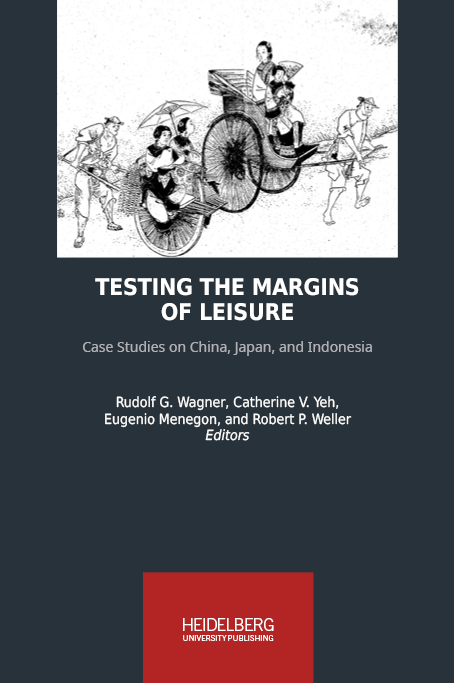Zitationsvorschlag
Lizenz (Kapitel)

Dieses Werk steht unter der Lizenz Creative Commons Namensnennung - Weitergabe unter gleichen Bedingungen 4.0 International.
Identifier (Buch)
Veröffentlicht
Advocacy, Agency, and Social Change in Leisure
The Shenbao guan and Shanghai 1860–1900
Abstract This study focuses on the tension between on the one side the openness of leisure pursuits for transcultural imports and on the other the urge to secure an ultimate cultural authenticity even in the very international environment of East Asian treaty ports. It studies the strategy implied in the publishing practice of the British-owned Shenbao guan Chinese-language publisher in the Shanghai International Settlement. Principally a provider of Chinese leisure products from a settlement that was staging itself not just as a commercial center but also as a paradise of leisure, this publishing house still had to establish its cultural credibility by insisting that it was only guided by commercial motives. By stressing its commercial nature as opposed to offering free handouts, it dispelled any connection to religious or political propaganda. By developing a community of contributors and readers largely from Chinese elite circles and republishing many inaccessible or rare Chinese books it showed its Chinese authenticity. And by stressing the ultimate agency of the Chinese buyers and readers in deciding the fate of its products, it countered claims of outside imposition. In the forms chosen, however, the transcultural element dominated. Using highly adapted new printing technologies such as lithography and introducing transnational formats such as the newspaper and the illustrated periodical while promoting transcultural genres such as the novel made its products extremely attractive and competitive to the point of prompting other foreign as well as Chinese publishers to follow suit. This effort effective made Shanghai the media center of China.
Keywords Shanghai International Settlements, cultural broker, Shenbao, Ernest Major, Late Qing publishing history






